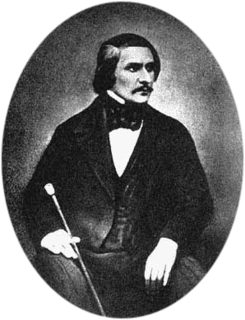A Quote by Jean de la Bruyere
To what excesses do men rush for the sake of religion, of whose truth they are so little persuaded, and to whose precepts they pay so little regard!
Related Quotes
A gentleman, is a rarer thing than some of us think for. Which of us can point out many such in his circle--men whose aims are generous, whose truth is constant and elevated; who can look the world honestly in the face, with an equal manly sympathy for the great and the small? We all know a hundred whose coats are well made, and a score who have excellent manners; but of gentlemen how many? Let us take a little scrap of paper, and each make out his list.
For character too is a process and an unfoldingamong our valued friends is there not someone or other who is a little too self confident and disdainful; whose distinguished mind is a little spotted with commonness; who is a little pinched here and protruberent there with native prejudices; or whose better energies are liable to lapse down the wrong channel under the influence of transient solicitations?
I am very fond of the modest manner of life of those solitary owners of remote villages, who in Little Russia are commonly called "old-fashioned," who are like tumbledown picturesque little houses, delightful in their simplicity and complete unlikeness to the new smooth buildings whose walls have not yet been discolored by the rain, whose roofs are not yet covered with green lichen, and whose porch does not display its bricks through the peeling stucco.
And last are the few whose delight is in meditation and understanding; who yearn not for goods, nor for victory, but for knowledge; who leave both market and battlefield to lose themselves in the quiet clarity of secluded thought; whose will is a light rather than a fire, whose haven is not power but truth: these are the men of wisdom, who stand aside unused by the world.
As the flowers follow the sun, and silently hold up their petals to be tinted and enlarged by its shining, so must we, if we would know the joy of God, hold our souls, wills, hearts, and minds, still before Him, whose voice commands, whose love warns, whose truth makes fair our whole being. God speaks for the most part in such silence only. If the soul be full of tumult and jangling voices, His voice is little likely to be heard.
Over the centuries, we've moved on from Scripture to accumulate precepts of ethical, legal and moral philosophy. We've evolved a liberal consensus of what we regard as underpinnings of decent society, such as the idea that we don't approve of slavery or discrimination on the grounds of race or sex, that we respect free speech and the rights of the individual. All of these things that have become second nature to our morals today owe very little to religion, and mostly have been won in opposition to the teeth of religion.
In the rush of complex modern living, we have a tendency to laugh at the 'bring-Papa-his-pipe-and-slippers' approach to marriage - but most men are more than a little wistful at its demise. A man dreams of home as a haven and his wife as a romantic, fragrant creature whose most important goal in life is making him comfortable.








































